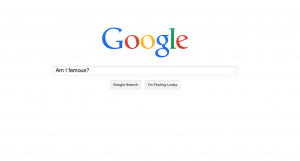Blog

Disclaimer: Although the issue of memory in a digital society is a very cutting-edge topic, this report can be rather confusing for anyone who hasn’t been thinking about remembering and forgetting in the digital age for as long as I have, I apologize for that. For more insight on the ideas behind this workshop and the project run by the Research Center for Information Law (FIR-HSG) at the University of St.Gallen, Switzerland please take a look at our Wiki.
Last month, I organized and attended the concluding workshop for our (my professors’ and my) project called “Remembering and Forgetting in the Digital Age“. We invited renown scholars from all over the world who in one way or the other deal with memory in the digital age and we were very happy to host guests such Urs Gasser, Viktor Mayer-Schönberger, Michael Arnold, Wesley Shumar and many more. More…
Data Protection, freedom of speech, Memory, privacy, right to be forgotten, value of data
Things that caught our eye
Max Mosley is is the former president of the Fédération Internationale de l’Automobile (FIA) and has been fighting Google for a couple of years now. He has been trying to sue Google for displaying unfortunate pictures of himself at – let’s call it – a”sex party”. According to Anya Proops, on Panopticon, the question Mosley brought to court against Google
“is an important issue for those data subjects who garner significant public attention within the online environment, as was the case with Mr Mosley. The difficulty for such individuals is that online stories or comments about them can proliferate on the internet at such a rate that they cannot practicably achieve the online amnesia they crave.”
On the other hand, public figures like Mosley will always be in the spotlight and of public interest which is why they probably should refrain from taking part in orgies or alike, just saying…
Just last year, a court in Hamburg decided that Google was no longer allowed to display these unflattering and possibly damaging (to Mosley’s reputation) photos. And last week, Mosley finally settled with Google and everyone is hoping that this is the last we hear about Mosley v Google. It is definitely not the last time we will be discussing the European “Right to be Forgotten”!
Data Protection, Forgetting, Google, privacy, Public figures, right to be forgotten
Things that caught our eye
Today marks the one year anniversary of the Google Spain ruling on the ‘right to be forgotten’, or perhaps more accurately ‘the right to delist’. A cohort of 80 (internet) scholars and researchers led by and have penned an open letter to Google requesting the release of more specific data on their compliance with the ruling. The letter is published in the Guardian today.
They state:
Beyond anecdote, we know very little about what kind and quantity of information is being delisted from search results, what sources are being delisted and on what scale, what kinds of requests fail and in what proportion, and what are Google’s guidelines in striking the balance between individual privacy and freedom of expression interests.
In order to remedy this lack of information, the scholars present a 13 points long list in which they lay down the specifics of their request. Some of their points overlap with the guidelines published by the Article 29 Working Party on the Right to be Forgotten, though not all.
Read the letter to Google in full here.
Full disclosure: one of our own contributors () is one of the undersigned.
Google, right to be forgotten
Blog
Two weeks ago the Article 29 Working Party (WP29) issued Guidelines on the Implementation of Google Spain judgment.
Let’s have a look at how often the WP29 elaborates on the delicate balance between oblivion, erasure or forgetting and the individuals’ right to freedom of expression. More…
Data Protection, Freedom of Expression, privacy, right to be forgotten, Right to Remember
Things that caught our eye
In his open letter to Google John M. Simpson, Privacy Project Director of Consumer Watchdog, is asking them to implement the EU’s “Right to be Forgotten” for US users on a voluntary basis too. His main argument why Google.com should do so, is that removals of links are not automated. Google has to strike a balance between the interests involved and seems to be doing so quite successfully, as Simpson states:
“I was heartened to see – based on Google’s own numbers – that you appear able to strike this balance in Europe and it does not appear to be an undue burden on your resources.”
Data Protection, Google, privacy, right to be forgotten
Blog

Fame is often a subjective inquiry. A famous person to one person can be a stranger to another. Someone considered famous in one country can be an average citizen in another. But Google, while implementing the Court of Justice of the European Union’s (CJEU) ruling in Google, Inc. v. Mario Costeja González regarding the right to be forgotten, has attempted to make an objective determination of who the public considers famous. More…
Court of Justice, EU, Fame, Famous people, Google, R2bf, right to be forgotten, Spain
Blog
Damian George and I recently published an article on the right to be forgotten respectively the right of oblivion and erasure in the Journal of Intellectual Property, Information Technology and Electronic Commerce Law (JIPITEC). In this publication we discuss different cases handled by French, German and Italian courts and attempt to understand how the different legal backgrounds have led to a diverse implementation of the European data protection principles into national legislation.
We draw different insights from our comparative case law analysis and would like to share some of them here. More…
Data Protection, ECJ C-131/21, Erasure, Notice and Take Down, Oblivion, right to be forgotten
Blog
The CJEU’s decision in the Case of Google Spain, Google v. AEPD has caused a lot of discussion around the globe (See both Anna’s and Stefan’s blog about the decision). Search Engines, especially Google, have called for guidance on how to decide whether information connected to a person’s name is
“inadequate, irrelevant or no longer relevant, or excessive in relation to the purposes of the processing at issue carried out by the operator of the search engines”
and thus has to be deleted. More…
Google, Google Spain, privacy, right to be forgotten
Blog
On 13 May the CJEU accepted a partial ‘right to be forgotten’ in the Case of Google Spain, Google v. AEPD. What is remarkable about this ruling, is the extent of privacy protection adopted.
The Facts of the Case
Some 16 years ago Mario Costeja González was going through a rough patch in his life and was unable to pay his social security debts. As a result, his house was sold via public auction. This auction was announced in a newspaper. At a later date an electronic version of the newspaper was made available online by its publisher. Google indexed the link and if you ‘googled’ the name of Mr. González a link to the newspaper article showed up in the search results. More…
aggregation, case note, freedom of information, Google, Google Spain, privacy, right to be forgotten